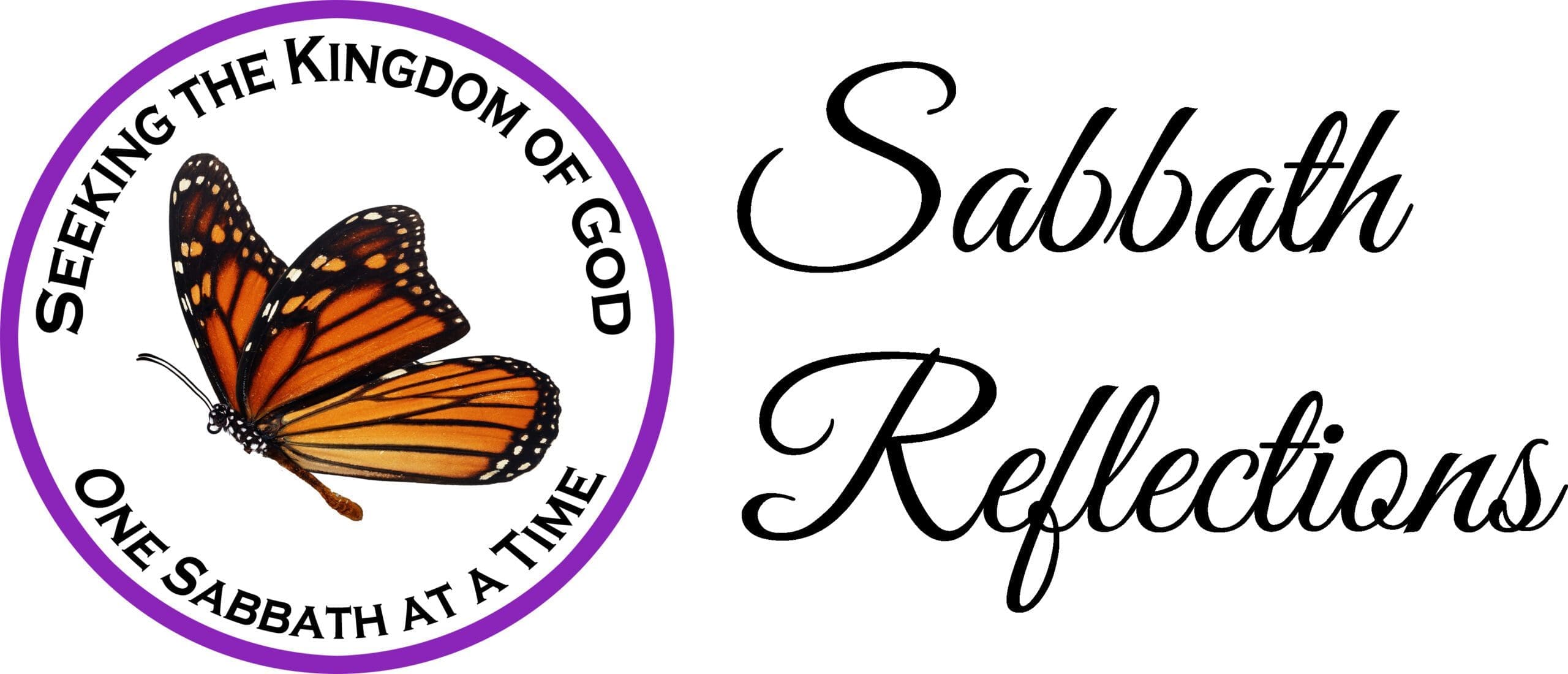SABBATH THOUGHT 2022-03-19—DEATH OF CHRIST
May God bless you on His Sabbath day!
Passover is soon to be upon us. Everyone is focused upon the deep meaning of this day, as we should be. There have been, and will be, sermons and messages about Passover because, without the Passover sacrifice, the other holydays are meaningless. In fact, there would be no gospel—good news—of the kingdom. It would be a message of bad news for the world.
Obviously, the core of Passover is a commandment to remember two things: the beaten body of Jesus Christ and His shed blood.
1 CORINTHIANS 11:24-26 And after giving thanks, He broke it and said, “Take, eat; this is My body, which is being broken for you. This do in the remembrance of Me.” 25 In like manner, He also took the cup after He had supped, saying, “This is the cup of the New Covenant in My blood. This do, as often as you drink it, in the remembrance of Me.” 26 For as often as you eat this bread and drink this cup, you solemnly proclaim the death of the Lord until He comes.
Passover is also the commanded memorial of the death of Jesus Christ (1 Cor. 11:26). The result of that selfless act is God’s forgiveness of our sins and our covenant of eternal life with Him, sealed with the sacrificial blood of His Son.
Passover is a very personal memorial because salvation is to a nation, but to individuals. Just as Passover was originally observed by each household (Exo. 12:3-4) instead of at the tabernacle or the temple, some believers will have a private ceremony at home while others will gather in small groups. Both are acceptable because Passover is a ceremony that is personal, so no priest (or elder) is required. Unlike the other sacrifices and offerings when offerers had to provide their own animal, Passover is also the one time that the people ensured that even the poor had the means to keep it. Notice 2 Chronicles 35:6-8 where Hezekiah, the king, gave 30,000 lambs to the people so that they could keep the Passover.
They also could not keep it in the first month because of their uncleanness so they kept the second Passover (Num. 9:6-13). The postponement of the Passover from the first month in Hezekiah’s time for uncleanness also shows how important it is to prepare for it. 2 Chronicles 30:15 records that the Levites and priests were ashamed because they had not cleansed themselves. Hezekiah also prayed for God to pardon the uncleanness of the people (2 Chr. 30:18). In addition to discerning the Lord’s body, all must be clean to keep the Passover. Cleansing is a process that takes time. John records that people in Jesus’ time came to Jerusalem early to purify themselves (John 11:55).
How do we purify and cleanse ourselves? Through prayer, fasting, studying, and understanding that God the Father and Jesus Christ gave everything to redeem us from our sins. Why purify ourselves? Because Passover is a reminder that we were unworthy of the Passover sacrifice. This is why the ceremony begins with footwashing (John 13:1-17)—the service of a lowly and humble servant. (Note: those who keep Passover alone do not perform the footwashing but must still purify themselves mentally and spiritually.) In the Greek, katharos means “clean”. It is where we get our word catharsis, which is a purging of harmful physical, mental, or emotional waste. It is perfectly fitting for the cleansing of our hearts and minds prior to Passover.
Another important aspect of the Passover is that it is actually the very first day of unleavened bread, making the feast of unleavened bread a total of eight days. This is clear in Luke 22:1 “Now the feast of unleavened bread, which is called Passover, was approaching.” This is also mentioned in Exodus 12:18, Matthew 26:17, and Mark 14:12. Why would the Passover be a day of unleavened bread? Paul tells us:
1 CORINTHIANS 5:6-8 Your glorying is not good. Know ye not that a little leaven leaveneth the whole lump? 7 Purge out therefore the old leaven, that ye may be a new lump, as ye are unleavened. For even Christ our passover is sacrificed for us: 8 Therefore let us keep the feast, not with old leaven, neither with the leaven of malice and wickedness; but with the unleavened bread of sincerity and truth.
Paul says to keep the feast with “the unleavened bread of sincerity and truth.” Is he referring to the seven days we call the Days of Unleavened Bread? No. He includes Passover in verse 7. Leaven represents sin, which is “malice and wickedness,” but unleavened bread represents “sincerity and truth.” The Greek word for “sincerity” is krineias. It is a wonderfully interesting word, especially as it applies to Passover. It means clearness of thought; that is, our minds are focused without distraction, with an implication of also being pure. The word is derived from eilikrine translated “pure” in Philippians 1:10 and 2 Peter 3:1. This form of the word literally means to be judged by sunlight! What is Jesus Christ called? The “Sun of righteousness” (Malachi 4:2). So, the Passover absolutely is a day of unleaven bread because it requires having the purity and truth of our Lord and Savior.
Besides remembering the body and blood of our Savior’s sacrifice, Passover is a memorial of His death. His resurrection is the means by which we have eternal life (Romans 6:8-10); however, His resurrection was not on Passover. Passover was the day He died, so it is the memorial of His death. But why do we remember His death rather than His resurrection? It has to do with sin: all believers must be dead to sin in order to have eternal life. Romans 6 makes this very clear:
ROMANS 6:1-23 1 What then shall we say? Shall we continue in sin, so that grace may abound? 2 MAY IT NEVER BE! We who died to sin, how shall we live any longer therein? 3 Or are you ignorant that we, as many as were baptized into Christ Jesus, were baptized into His death? 4 Therefore, we were buried with Him through the baptism into the death; so that, just as Christ was raised from the dead by the glory of the Father, in the same way, we also should walk in newness of life. 5 For if we have been conjoined together in the likeness of His death, so also shall we be in the likeness of His resurrection. 6 Knowing this, that our old man was co-crucified with Him in order that the body of sin might be destroyed, so that we might no longer be enslaved to sin; 7 Because the one who has died to sin has been justified from sin. 8 Now if we died together with Christ, we believe that we shall also live with Him, 9 Knowing that Christ, having been raised from the dead, dies no more; death no longer has any dominion over Him. 10 For when He died, He died unto sin once for all; but in that He lives, He lives unto God. 11 In the same way also, you should indeed reckon yourselves to be dead to sin, but alive to God through Christ Jesus our Lord. 12 Therefore, do not let sin rule in your mortal body by obeying it in the lusts thereof. 13 Likewise, do not yield your members as instruments of unrighteousness to sin; rather, yield yourselves to God as those who are alive from the dead, and your members as instruments of righteousness to God. 14 For sin shall not rule over you because you are not under law, but under grace. 15 What then? Shall we sin because we are not under law, but under grace? MAY IT NEVER BE! 16 Don’t you realize that to whom you yield yourselves as servants to obey, you are servants of the one you obey, whether it is of sin unto death, or of obedience unto righteousness? 17 But thanks be to God, that you were the servants of sin, but you have obeyed from the heart that form of doctrine which was delivered to you; 18 And having been delivered from sin, you became the servants of righteousness. 19 I speak from a human point of view because of the weakness of your flesh; for just as you once yielded your members in bondage to uncleanness, and to lawlessness unto lawlessness, so now yield your members in bondage to righteousness unto sanctification. 20 For when you were the servants of sin, you were free from righteousness. 21 Therefore, what fruit did you have then in the things of which you are now ashamed? For the end result of those things is death. 22 But now that you have been delivered from sin and have become servants of God, you have your fruit unto sanctification, and the end result is eternal life. 23 For the wages of sin is death, but the gift of God is eternal life through Christ Jesus our Lord.
All believers know that the blood of Christ cleanses us from all sin (1 John 1:7). We also know that the beaten body of Jesus Christ heals us of our sins. (Physically, our bodies must be healed to prevent recurrence of a disease. Likewise, we must be healed of our sins so that we do not commit them again.) But that is not enough for salvation. We must also be dead to sin. Baptism portrays the death of our life of sin. And it is not just any death. It is not the death of the physical body, which happens to all whether they are good or evil. It is the death of Jesus Christ who was made sin just prior to dying (2 Cor. 5:21; 1 Pet. 2:24). Think about it. We are a “new creation” (2 Cor. 5:17) upon receiving God’s Holy Spirit but prior to that, we must die in the watery grave of baptism. Jesus Christ literally bore our sins in Himself when He died, allowing us to commit our sinful lives to the grave through baptism. In other words, no one can have God’s Holy Spirit unless they have first died to sin!
All believers were “buried with Him through the baptism into the death” (Rom. 6:4). What is THE death? We were “baptized into His [Christ’s] death” (Rom. 6:3). Jesus Christ lived a sinless life; therefore, His death was a special one because He “gave His life [for] a ransom” (Mat. 20:28). In other words, Jesus did not die for His own sins; He died for the sins of others. His death could not have been the second (eternal) death because that it is for sinners who reject God. Since Jesus Christ was sinless, His death is the one and only by which we can die for sin but live unto righteousness (Rom. 6:3-4; Col. 2:12).
The memorial of the death of Jesus Christ is fundamental to Passover. We remember His body and blood but we also honor and recall the one death to which we must all willingly submit so that we can die to sin and then live unto righteousness with God’s Holy Spirit in us!
May God’s grace and peace be upon you!
Steven Greene
https://sabbathreflections.org
PS—I want to thank everyone for their emails. I do not reply to everyone, but your comments are very encouraging to my wife and me. Some of you also ask questions and I always try to answer them. They are both interesting and important, so keep them coming. I hope these weekly messages have been helpful and uplifting.


